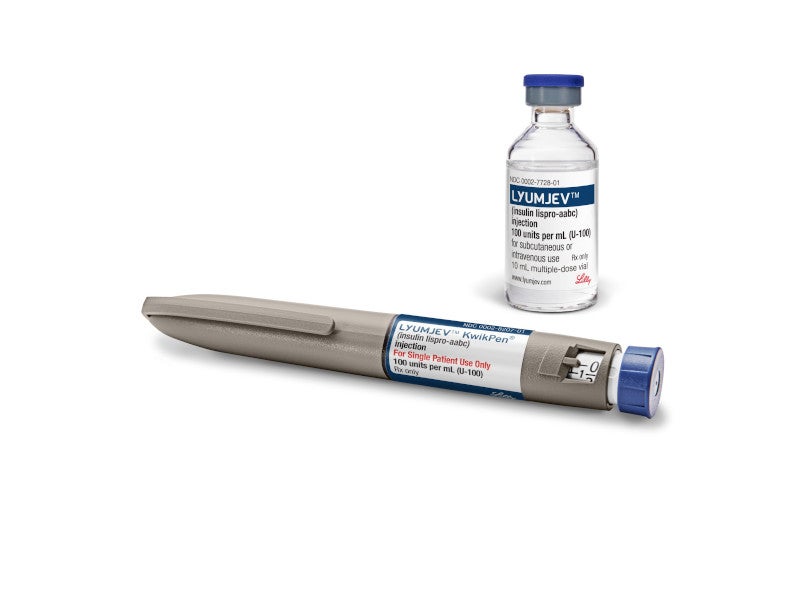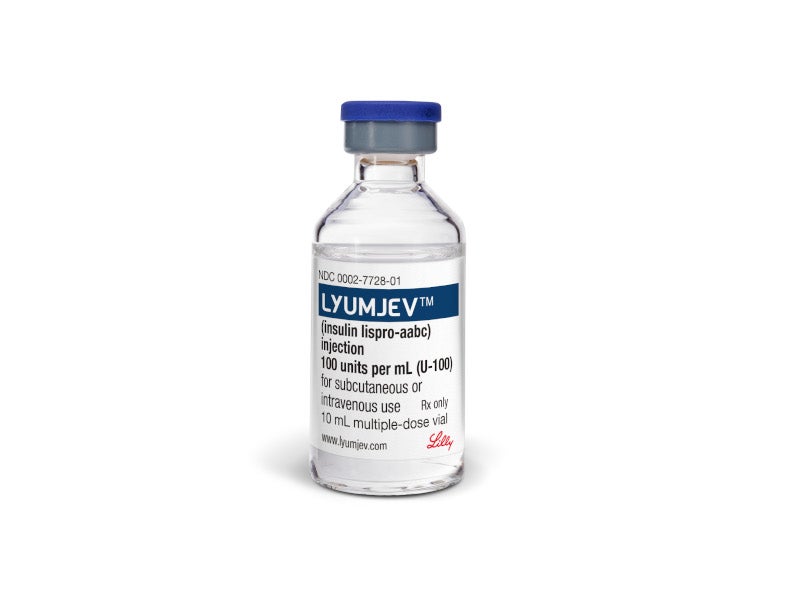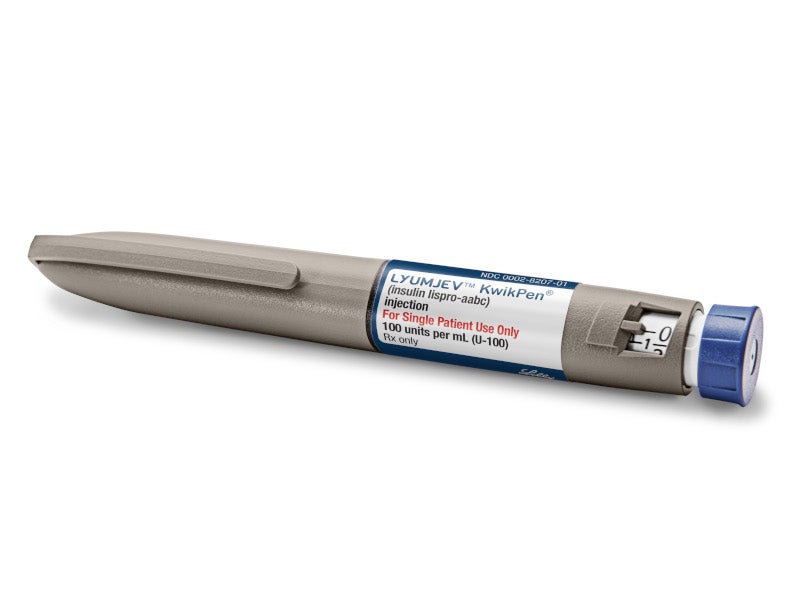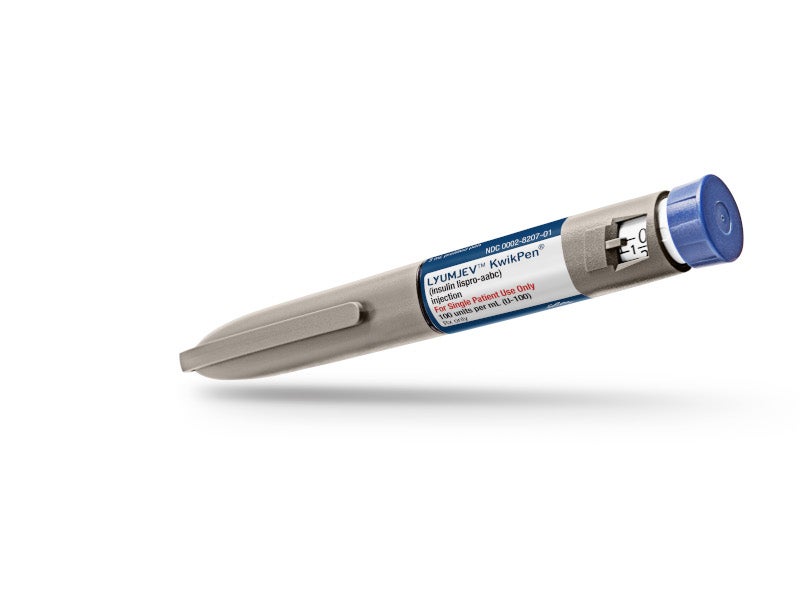Lyumjev™ (insulin lispro-aabc) is rapid-acting insulin indicated to enhance glucose control in adults with type 1 and type 2 diabetes.
Eli Lilly and Company has developed the formulation of insulin lispro for enhanced absorption of insulin into the blood circulation and lower the amount of haemoglobin A1C.
Lyumjev was approved by the US Food and Drug Administration (FDA) in June 2020. Regulatory authorities in several markets including Japan and the European Union (EU) have approved the Lyumjev drug in March 2020.
Eli Lilly is actively working to make Lyumjev available as early as possible to the people with diabetes in the US. Lyumjev will be available as an intravenous infusion or subcutaneous injection in 100 units / ml (U-100) and 200 units / ml (U-200) strengths.
Diabetes causes and symptoms
Diabetes is a metabolic condition that develops either when the pancreas does not contain enough insulin or when the body cannot use insulin efficiently.
Type 1 diabetes (formerly insulin-dependent, juvenile or childhood-onset) is characterised by a deficit in insulin synthesis which involves regular insulin administration; its is unknown.
Type 2 diabetes (formerly non-insulin-dependent or adult-onset) is the result of the body’s ineffective use of insulin. Most diabetes sufferers have type 2 diabetes. This form of diabetes is merely the result of physical inactivity and excess body weight.
The symptoms include prolonged urinary excretion (polyuria), thirst (polydipsia), chronic hunger, loss of weight, vision changes and fatigue. These symptoms may happen unexpectedly.
Type 2 diabetes symptoms can be close to those of type 1 diabetes but much less defined.
Lyumjev mechanism of action
Lyumjev’s primary activity is the regulation of the metabolism of glucose. The drug controls elevated blood sugar levels as fast-acting mealtime insulin after meals in adults with diabetes, close to how normal insulin acts after meals in people without diabetes.
Insulins such as lispro-aabc perform their unique action by binding to insulin receptors.
Receptor-bound insulin reduces glucose by promoting peripheral absorption of glucose in skeletal muscle and fat, and by inhibiting the production of hepatic glucose.
Insulins suppress lipolysis and proteolysis, which enhance the synthesis of proteins.
Clinical trials on Lyumjev
FDA approval of Lyumjev was based on the results from the Phase III PRONTO clinical trial programme.
PRONTO-T1D and PRONTO-T2D were 26-week randomised, double-blind, multinational, active-controlled, Phase III clinical studies. PRONTO-T1D clinical study enrolled 1,222 patients with type 1 diabetes, while PRONTO-T2D 673 patients with type 2 diabetes.
Both studies were designed as treat-to-target trials in which each arm was managed to reach the same extent of blood glucose regulation and measured the other important treatment outcomes, such as hypoglycaemia rates and post-meal glucose control.
The study demonstrated comparison of Lyumjev (insulin lispro-aabc injection, 100 units / ml) with HUMALOG (insulin lispro injection, 100 units/ml), both in combination with either insulin glargine or insulin degludec in type 1 and type 2 diabetes adults, respectively.
The primary endpoint was to determine whether Lyumjev is non-inferior to HUMALOG in A1C reduction from baseline after 26 weeks when Lyumjev and HUMALOG were administered at mealtime.
Its secondary endpoint was to determine the superiority of Lyumjev over HUMALOG at week 26 in one-hour and two-hour post-meal blood glucose spikes.
Lyumjev met the primary outcome of non-inferior reductions in A1C from baseline relative to HUMALOG at 26 weeks when Lyumjev and HUMALOG were administered at mealtime.
Lyumjev demonstrated a greater decrease in blood glucose spikes when compared to HUMALOG at both one and two hours after a test meal.
In Phase III clinical trials, similar safety and tolerability profiles were observed for Lyumjev and HUMALOG.
The adverse reactions observed during the trials were hypoglycaemia, skin thickening or pits at the injection site, rash, itching, weight gain and allergic reactions.






